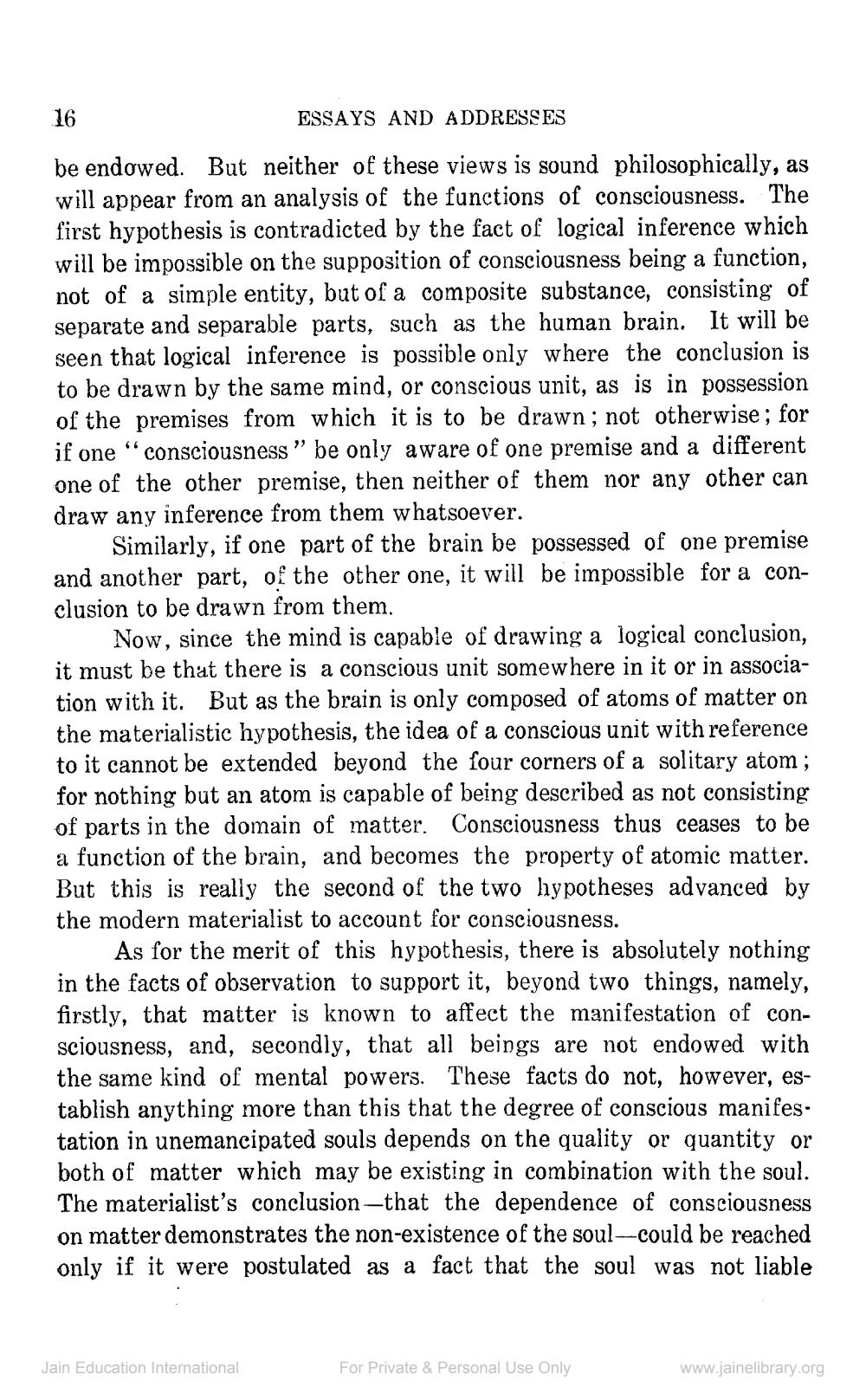________________
16
ESSAYS AND ADDRESSES
be endowed. But neither of these views is sound philosophically, as will appear from an analysis of the functions of consciousness. The first hypothesis is contradicted by the fact of logical inference which will be impossible on the supposition of consciousness being a function, not of a simple entity, but of a composite substance, consisting of separate and separable parts, such as the human brain. It will be seen that logical inference is possible only where the conclusion is to be drawn by the same mind, or conscious unit, as is in possession of the premises from which it is to be drawn; not otherwise; for if one consciousness" be only aware of one premise and a different one of the other premise, then neither of them nor any other can draw any inference from them whatsoever.
Similarly, if one part of the brain be possessed of one premise and another part, of the other one, it will be impossible for a conclusion to be drawn from them.
(6
Now, since the mind is capable of drawing a logical conclusion, it must be that there is a conscious unit somewhere in it or in association with it. But as the brain is only composed of atoms of matter on the materialistic hypothesis, the idea of a conscious unit with reference to it cannot be extended beyond the four corners of a solitary atom; for nothing but an atom is capable of being described as not consisting of parts in the domain of matter. Consciousness thus ceases to be a function of the brain, and becomes the property of atomic matter. But this is really the second of the two hypotheses advanced by the modern materialist to account for consciousness.
As for the merit of this hypothesis, there is absolutely nothing in the facts of observation to support it, beyond two things, namely, firstly, that matter is known to affect the manifestation of consciousness, and, secondly, that all beings are not endowed with the same kind of mental powers. These facts do not, however, establish anything more than this that the degree of conscious manifestation in unemancipated souls depends on the quality or quantity or both of matter which may be existing in combination with the soul. The materialist's conclusion-that the dependence of consciousness on matter demonstrates the non-existence of the soul-could be reached only if it were postulated as a fact that the soul was not liable
Jain Education International
For Private & Personal Use Only
www.jainelibrary.org




